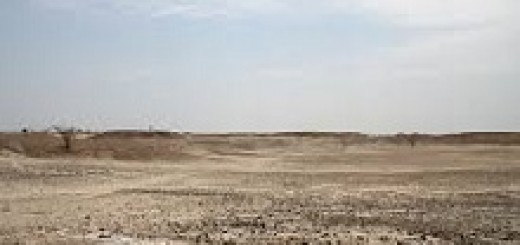By Avner Friedmann
Except for its opening words, our Parsha deals exclusively with the building of the Mishkan; the portable Temple that traveled with the Jewish people during their forty year sojourn in the desert. It begins with the words,[1] “Moshe assembled the entire assembly of the Children of Israel and said to them, ‘These are the things that Hashem commanded to do them: For six days work may be done, but the seventh day shall be holy for you, a Shabbat of complete rest for Hashem etc.”
He was conveying that despite the paramount importance of building a dwelling place for HaShem, nonetheless, it could not be built on the holy day of Shabbat. As Rashi comments on these verses[2], the building of the Mishkan did not supersede the laws of Shabbat because the day that testifies to HaShem’s existence as the Creator of the world, supersedes His place of worship.
The Midrash and the Holy Zohar[3] state that the mitzvah (commandment) of Shabbat is equivalent to all the mitzvot of the Torah and that when we keep Shabbat it is as if we are keeping the entire Torah. It is as if HaShem is saying, “Do not desecrate Shabbat, even if that means not building a home for Me; all the more so for any lesser reason, except for a case where someone’s life is threatened.
In the Torah’s account of creation, the only day that specifically received HaShem’s blessings was the day of Shabbat, as the verse states,[4] “G-d blessed the seventh day and sanctified it etc.” This teaches us that all the blessings of health, livelihood, happiness from our children and peace in the home, have their source in Shabbat. Though we may think that by not working on Shabbat we are losing income, in reality, the very opposite is true. The Talmud[5] teaches us that in reality HaShem is the source of our livelihood. When we refrain from working on Shabbat, HaShem blesses the work of our hands during the rest of the week. However if, G-d forbid, we work on Shabbat, whatever money we may earn finds no blessing and will ultimately be lost without us having enjoyed any benefit from it.
Keeping Shabbat teaches us that everything is in HaShem’s hand and that if we trust in Him He will surely provide us with all our needs, as King David said[6]: “Those who know Your Name will trust in you, for You have not forsaken those who seek You HaShem” and as the prophet Jeremiah said[7], “Blessed is the man who trusts in HaShem; then HaShem will be his security.” When we do our part, HaShem will surely help us in achieving a full level of trust in Him[8] and He will shower us with His bountiful blessings.
[1] Exodus 35:1-2.
[2] Ibid.
[3] Zohar Beshalach 47a, Shemot Rabbah 25:12.
[4] Genesis 2:3.
[5] Kidushin Perek 4, Moed Katan 28a, Nidah 16b.
[6] Psalms 9:11.
[7] Jeremiah 17:7.
[8] Chatam Sofer in Torat Moshe-Bechukotai.






















